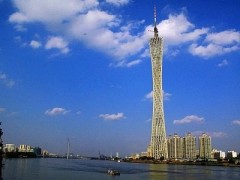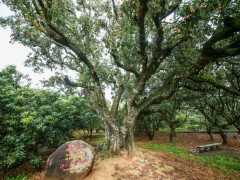Nan Hua Buddhist Temple (佛光山南华寺, Fo Guang Shan Nanhua Si) is the largest Buddhist temple and seminary in Africa, and is situated in the Cultura Park suburb of Bronkhorstspruit, South Africa. It is the African headquarters of the Fo Guang Shan (Buddha's Light Mountain) Order, which is currently the largest monastery in Taiwan, covering over 600 acres. Fo Guang Shan was established in 1967 by Venerable Master Hsing Yun, and is a Mahayana Chinese Buddhism monastic order. The Temple, like its mother order in Taiwan, follows the school of Buddhism as well as the Pure Land School.
History
The Temple can trace its roots back to 8 March 1992, when the Bronkhorstspruit City Council, under its chief executive and former church minister, Dr Hennie Senekal, who had previously visited Taiwan to promote investment opportunities in his town, donated six hectares of land to the Fo Guang Shan Buddhist Order for a Chinese Buddhist cultural and educational complex.
The Fo Guang Shan Religious Affairs Committee subsequently sent Venerable Hui Li to be the founding abbot of the temple, whose main aim is to promote Buddhism on the African continent. Construction began in October 1992; the eventual cost of the temple complex was sixty million South African rand.
Since then the Temple itself, as well as the Nan Hua Buddhist Temple Guesthouse, African Buddhist Seminary (ABS), Nan Hua Village, Assembly Hall, and a Pureland Ch'an retreat centre have been built. Nan Hua Buddhist Temple has opened branches in other South African cities, in Johannesburg, Bloemfontein, Newcastle, Durban and Cape Town. They are also very active in community, charity, cultural and prison outreach programmes.
The main temple was officially opened in 2005 by Fo Guang Shan 7th Head Abbot Venerable Master Hsin Pei.
Pureland Ch'an retreat centre
The Temple also has a specialist meditation retreat centre that is located about one and a half kilometres away. It is currently (2006) under the direction of Ch'an Master Hui Re. The meditation centre is open to all people – both monastic and laity – and does not discriminate on the basis of religion, nationality, sex, or any other factor. Beginner, intermediate, and advanced courses are held, and include yoga and an organic, vegetarian diet. The centre includes a large meditation hall, a monastic residence, and residences for the meditation practitioners.





